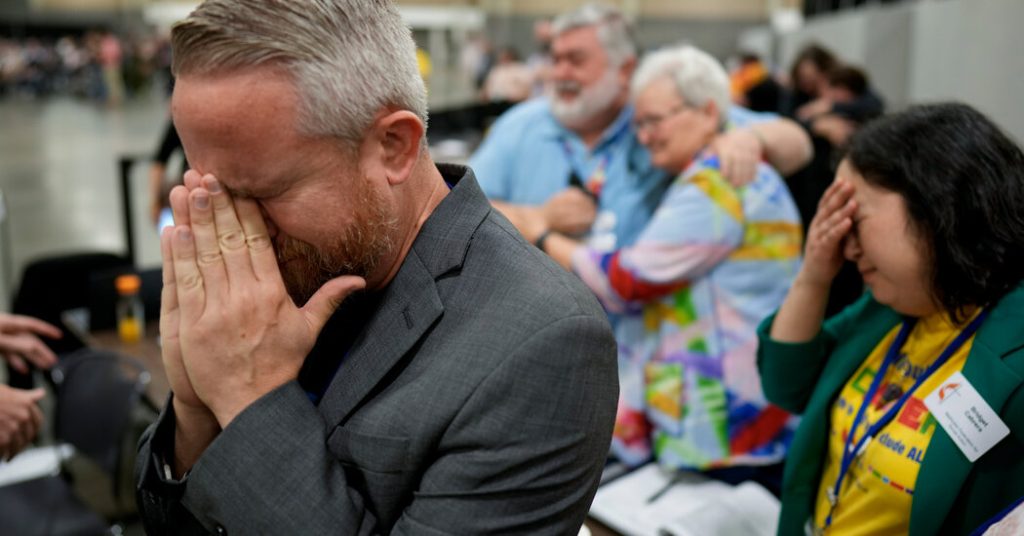The United Methodist Church lifted a 40-year-old ban on ordaining gay clergy in a move that had been anticipated due to the departure of a large number of congregations in recent years. The ban was overturned without debate at a meeting in Charlotte, N.C., where delegates also voted to prevent local leaders from penalizing clergy or churches for holding or refusing to hold same-sex weddings. Further votes on LGBTQ inclusion are expected before the meeting concludes. Bishop Tracy Smith Malone, the first Black woman to serve as president of the Council of Bishops, described the atmosphere in the room as a “Pentecost moment” marked by a sense of celebration and unity.
A plan to restructure the global denomination into regional divisions, allowing different regions autonomy in adapting rules on issues like sexuality, was also approved at the meeting. The change is seen as a way to address tensions between the progressive American church and more conservative international factions. The move towards LGBTQ inclusion primarily impacts churches in the United States, where the United Methodist Church is the second-largest Protestant denomination. There were 5.4 million Methodists in the U.S. in 2022, a number expected to decline further following recent departures.
Delegates also voted to end a ban on using United Methodist funds to “promote acceptance of homosexuality,” a shift that was welcomed by ministries working with LGBTQ individuals. Jan Lawrence, executive director of Reconciling Ministries Network, expressed optimism about the opportunities ahead to refocus efforts on inclusivity within the church. The atmosphere at the meetings was notably agreeable and joyful, with all the group’s goals likely to be achieved with the support of delegates.
The decision to lift the ban on gay clergy followed years of turmoil within the denomination over issues related to homosexuality. While the Episcopalian and Lutheran churches have formed breakaway denominations in response to the acceptance of gay clergy, the Catholic Church has faced internal debates about same-sex relationships, with some traditionalists expressing concern about recent directives from Pope Francis. The United Methodist Church previously tightened restrictions on same-sex marriages and clergy in 2019, resulting in the departure of conservative congregations.
Conservatives within the United Methodist Church had voiced concerns about enforcing bans on gay clergy and same-sex weddings, leading some congregations to leave the denomination over “reasons of conscience.” The departure of these conservative congregations contributed to a decline in the denomination’s membership across the U.S., with a significant number of churches opting to join the breakaway Global Methodist Church or become independent. The debate over LGBTQ inclusion has highlighted deeper divisions within the church related to interpretations of scripture, sin, and salvation.
The vote to lift the ban on gay clergy was met with deep optimism and relief by supporters like Pastor Chet Jechura, who had previously wept over the enforcement of the ban against gay clergy five years earlier. Now set to be ordained in the coming weeks, Jechura expressed profound joy and relief at the historic moment for LGBTQ inclusion within the church. Participants at the meeting celebrated the vote by singing Methodist hymns that have become anthems for LGBTQ Christians, emphasizing unity and inclusivity within the church.


